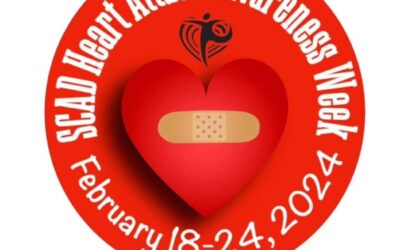Spontaneous coronary artery dissection (SCAD) is a rare and often misdiagnosed condition that can have severe consequences on a person’s health. It is a condition that predominantly affects women and can cause chest pain, heart attacks, arrhythmias, and even sudden death. However, there is hope for those who have been diagnosed with SCAD. In this blog post, we will share the inspiring stories of SCAD survivors and the lessons they have learned along the way.
Section 1: The Diagnosis
Many SCAD survivors share a common experience – they were initially misdiagnosed, and it took them a long time to receive the correct diagnosis. SCAD is often mistaken for other cardiac conditions, such as a heart attack or angina. This can lead to delays in treatment, which can have severe consequences.
Take the case of Sarah, a 37-year-old mother of two who experienced severe chest pain. She went to the emergency department, where she was diagnosed with a heart attack. However, her condition worsened, and it was only after an angiogram that she was correctly diagnosed with SCAD. Sarah underwent emergency surgery and was placed on medication to manage her condition.
Section 2: The Recovery
Recovering from SCAD can be a long and difficult process. It can take months or even years for a person to fully recover from the condition. However, with the right treatment and support, many SCAD survivors can go on to lead fulfilling lives.
Take the case of Lisa, a 40-year-old who experienced SCAD while on vacation. She underwent emergency surgery and was placed on medication. However, her recovery was slow, and it took her almost a year to feel like herself again. Lisa credits her recovery to her support system, which included her family, friends, and healthcare team. She also made lifestyle changes, such as adopting a healthier diet and exercise regimen, to manage her condition.
Section 3: The Future
While SCAD can be a life-changing condition, it does not have to be a life-ending one. With the right treatment and support, many SCAD survivors can go on to lead fulfilling lives. They may need to make lifestyle changes and take medication to manage their condition, but they can still pursue their dreams and goals.
Take the case of Rachel, a 34-year-old who experienced SCAD while pregnant. She underwent emergency surgery and was placed on medication. However, she did not let her condition stop her from pursuing her dreams. She went on to graduate from law school and is now a successful attorney. Rachel credits her success to her faith, her family, and her healthcare team.
Conclusion
SCAD can be a frightening and life-changing condition, but it does not have to be a life-ending one. With the right treatment and support, many SCAD survivors can go on to lead fulfilling lives. If you or someone you love has been diagnosed with SCAD, know that there is hope. You are not alone, and there are resources available to help you on your journey of recovery.






0 Comments